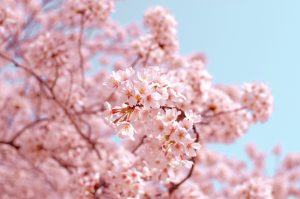Former Prime Minister Abe Shinzo apologized Thursday after prosecutors declined to indict him for illegal payments his office made involving dinner receptions for his supporters during Japan’s popular cherry blossom season.
When Abe resigned in September, he cited ill health but critics have suggested the scandal might have been a reason. His successor, Suga Yoshihide, scrapped the annual cherry blossom viewing party the day he took office, but his government has seen its public support plunge due to delayed coronavirus measures and a spate of scandals involving Abe’s former ministers.
The Tokyo District Public Prosecutors Office cited lack of evidence in deciding not to press charges against Abe. But it formally indicted a longtime aide who allegedly failed to report fees and payments for the receptions from 2016 to 2019.
Abe has denied wrongdoing and said Thursday that he had no knowledge about the illegal payments until the report about the investigation surfaced last month.
“Even though the accounting was done without my knowledge, I am keenly aware of my moral responsibility,” Abe told a packed news conference. “I would like to deeply and sincerely apologize to the people.”
Abe, who remains a lawmaker in Japan’s ruling party, is set to speak in a parliamentary session Friday to correct previous remarks he made about the cherry blossom viewing party expenses. Opposition lawmakers say Abe gave false statements at least 118 times.
Suga, who was the chief Cabinet secretary in Abe’s government, said he takes seriously that the explanation Abe repeatedly provided turned out to be untrue. Suga also apologized that he gave a false explanation to parliament based on information he got from Abe and his office.
The scandal started after opposition lawmakers raised question about a 2018 dinner party for which Abe’s guests paid a 5,000 yen ($48) fee. They have said that was low for a party at an upscale Tokyo hotel and alleged Abe’s office covered the difference.
Prosecutors investigated whether Abe, his aide and two executives from his political support group had subsidized the party fees in violation of campaign and election funds laws. Japanese law prohibits politicians from giving gifts to constituents.
The indictment alleged the aide, Hiroyuki Haikawa, 61, failed to report that 11.6 million yen ($111,600 ) in admission fees were collected from party guests and a 18.7 million ($180,000) payment was made to the hotel. Abe said Haikawa took the charges seriously and has resigned as his aide. He hasn’t spoken publicly.
By Mari Yamaguchi for the Associated Press in Tokyo, Japan

































